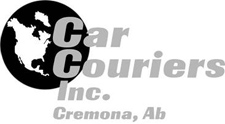Déjà Vu? Tariffs Feel a Lot Like COVID Disruption
If you’re in or around Canada’s auto industry, you might be getting a strange sense of déjà vu. Back in 2020, the problem was a global pandemic. Today, it’s trade tariffs — but the result feels eerily familiar: delivery delays, rising costs, tighter inventories, and logistics uncertainty.
During COVID, transport trucks and car haulers were parked, waiting on inventory and vehicles that never came. In 2025, trucks are rolling — but routes are rerouted, shipments paused, and timelines stretched thin. For auto haulers, it’s not just history repeating — it’s déjà vu on wheels.
What Changed: Tariffs Are Disrupting the Flow
In response to U.S. trade actions, Canada imposed a 25% retaliatory tariff on many U.S.-built vehicles and parts. The fallout has been immediate:
- Nissan has paused shipments of the Pathfinder, Murano, and Frontier to Canada.
- Mazda halted Canadian deliveries of the CX‑50, which is built in Alabama.
- Subaru has halted shipping their 2025 made cars to Canada, instead re-assigning them to US dealers. Canadian dealerships will look forward to 2026 production coming out of Japan.
- Tesla hasn’t officially paused exports, but Québec sales dropped 85% this year due to exclusion from EV rebates.
- Chinese EVs, including BYD, are effectively blocked from entering the Canadian market by a new 100% tariff.
For the auto hauling industry, this means fewer cars moving across the border, more routing complexity, and a constant need to adapt to a changing regulatory landscape.
A Quiet Storm with Real Consequences
While COVID came on fast and furious, tariffs are more like a slow burn — but just as damaging:
- Ontario is expected to lose over C$550 million in vehicle exports this year, along with more than 2,000 auto sector jobs.
- Exports of motor vehicles and parts may fall nearly 57% in Q2 2025 compared to pre-tariff levels.
- Manufacturing output in Canada declined 1.9% in April 2025, the worst monthly drop since 2021.
For automakers, this isn’t a hiccup — it’s a structural shift. And for haulers, it’s a fundamental change in how (and where) the work gets done.
Disruption Is Disruption — Whether It’s a Pandemic or Policy
COVID and tariffs are different beasts, but the symptoms are all too similar:
- 📉 Inventory unpredictability — dealers don’t know what’s arriving, or when
- ⏱️ Longer delivery windows — customs and rerouting eat up time
- 💵 Rising costs — fuel, insurance, customs fees, and labor are all more expensive
- 📊 Forecasting fatigue — long-term planning feels like guesswork again
Like in 2020, companies with flexible operations and strong logistics partners are the ones best positioned to navigate the road ahead.
What This Means for Auto Haulers
Auto transport companies are already seeing the effects:
- Fewer cross-border hauls from U.S. plants affected by tariffs
- More delays at customs due to increased inspections and documentation
- A shift in demand toward vehicles made in Canada, Mexico or Overseas Production
- EV logistics are becoming more complicated due to price hikes and limited availability
At Car Couriers, we’re adapting in real-time, building smarter routes, monitoring trade policy, and communicating early with our partners to minimize surprises.
Inventory Crunch 2.0: What Consumers Should Know
Canada’s new vehicle inventory is tightening again — and prices are climbing:
- New cars may cost $6,000–$8,000 more on average due to tariffs on aluminum, steel, and auto parts.
- EVs and hybrids are becoming harder to source, and mandates requiring 20% of new sales to be EVs by 2026 are pushing supply to the edge.
- Repair parts are rising in price, and auto insurance premiums are increasing as a result.
Consumer tip: If you’re considering a new car, especially an EV or hybrid, don’t wait. Focus on vehicles built in North America with high CUSMA compliance to avoid the steepest price hikes.
Final Thoughts: Stay Flexible, Stay Informed
COVID was a crash. Tariffs are a slow grind. But both revealed the same truth: strong logistics partnerships are essential, and the ability to adapt quickly is everything.
At Car Couriers Inc., we’re committed to helping OEMs, dealers, and logistics teams navigate this new wave of disruption. Whether it’s rerouting loads, forecasting best route availability, we’re here to keep your business moving — even when the rules keep changing.
Want to stay ahead of the curve?
📨 Contact us today to learn how we’re supporting clients through the tariff shift.
💬 Join the conversation on LinkedIn — how are these new tariffs affecting your operation?
Consumer tip: If you’re considering a new car, especially an EV or hybrid, don’t wait. Focus on vehicles built in North America with high CUSMA compliance to avoid the steepest price hikes.
